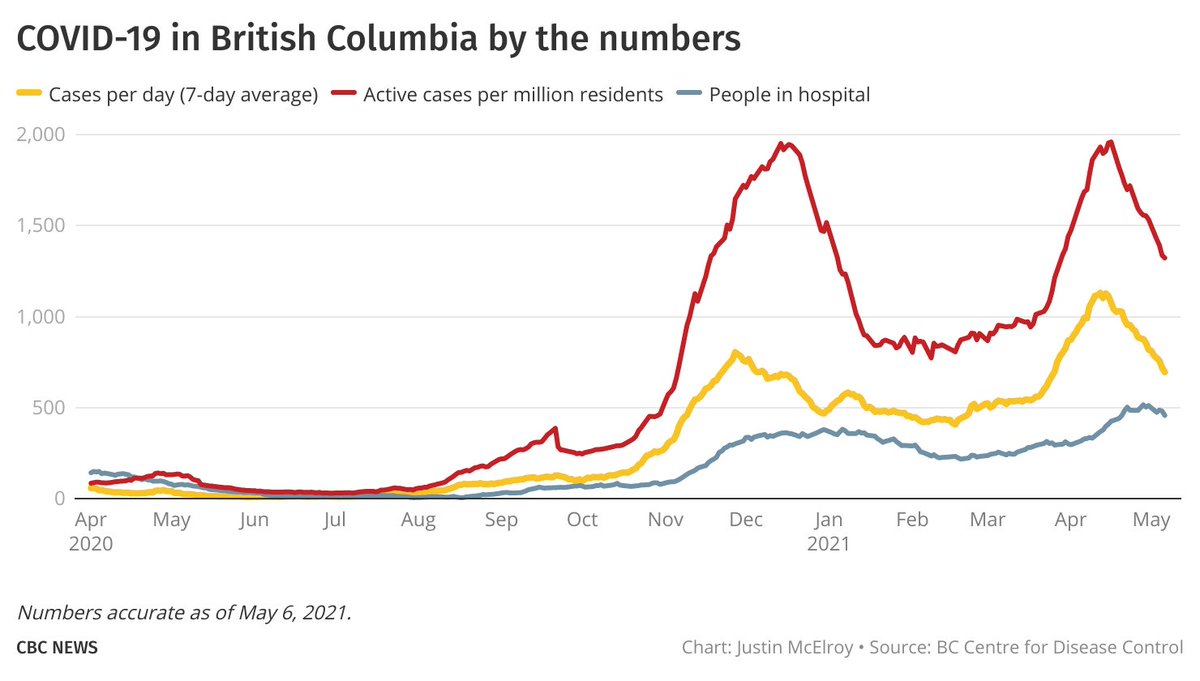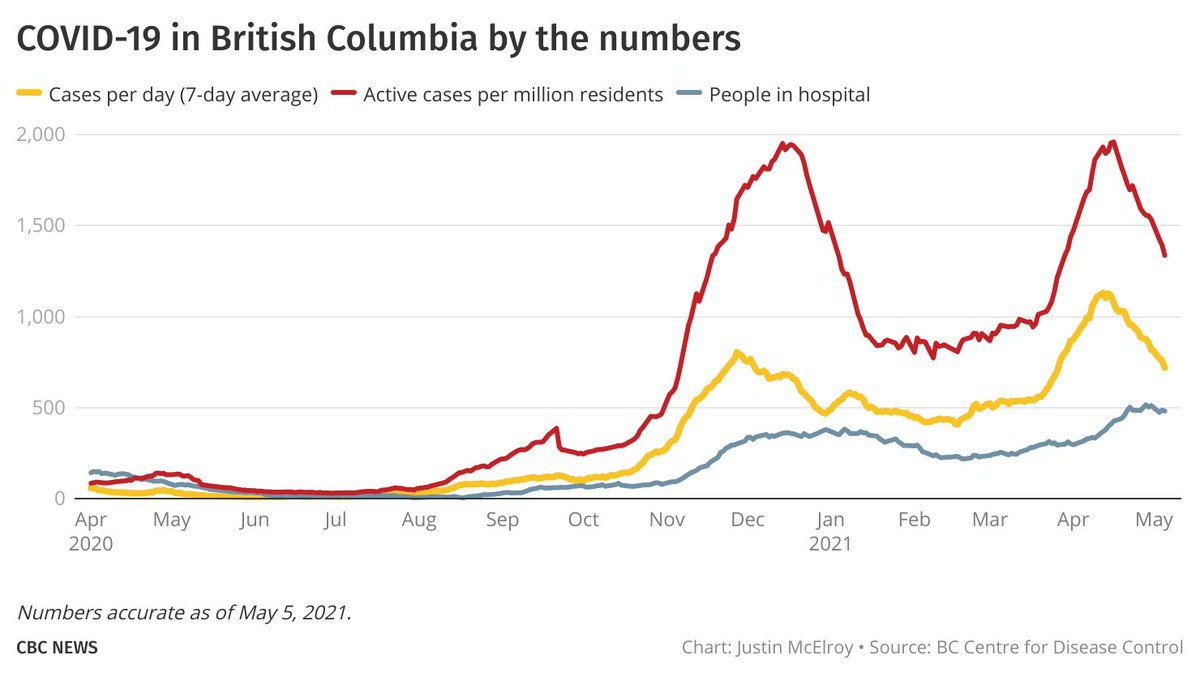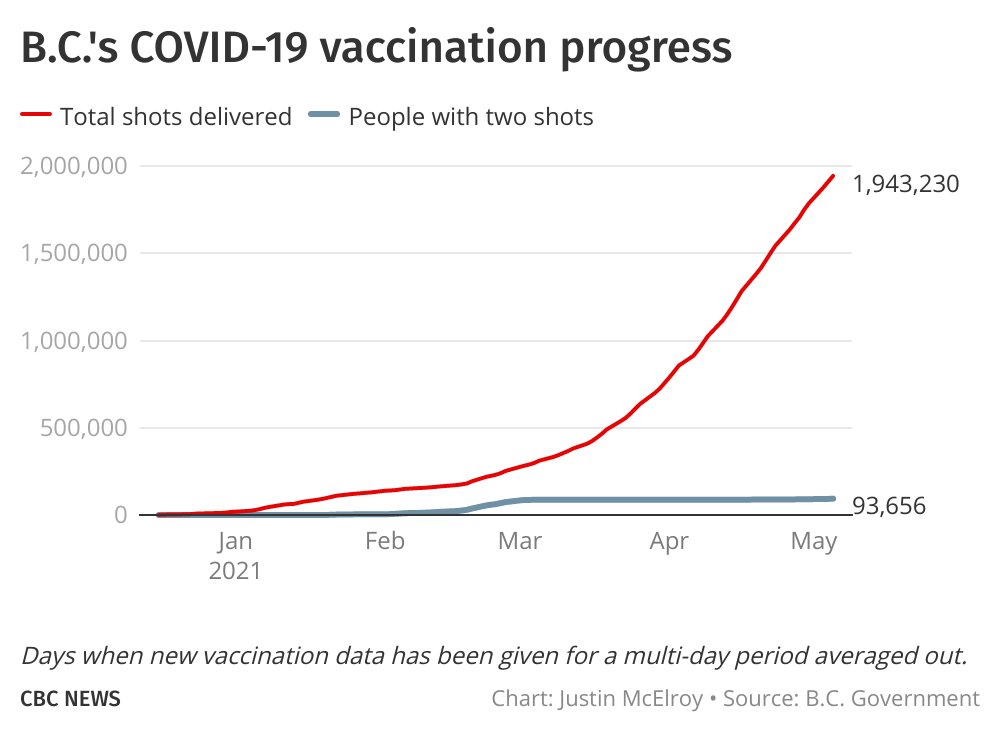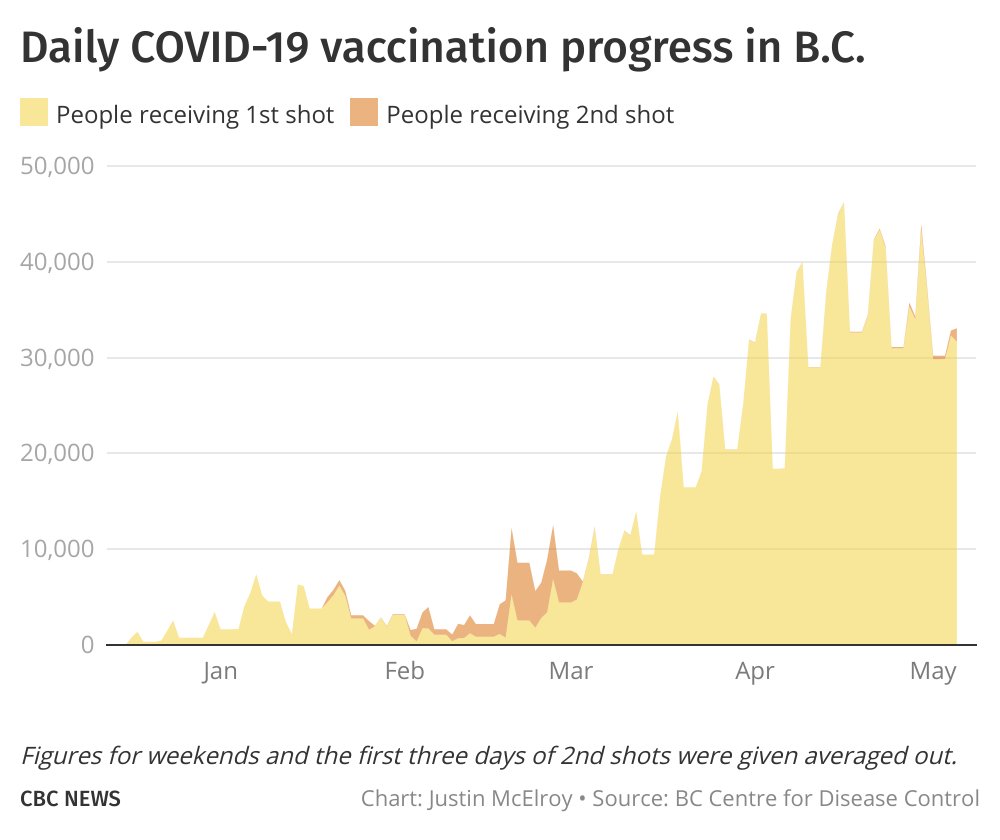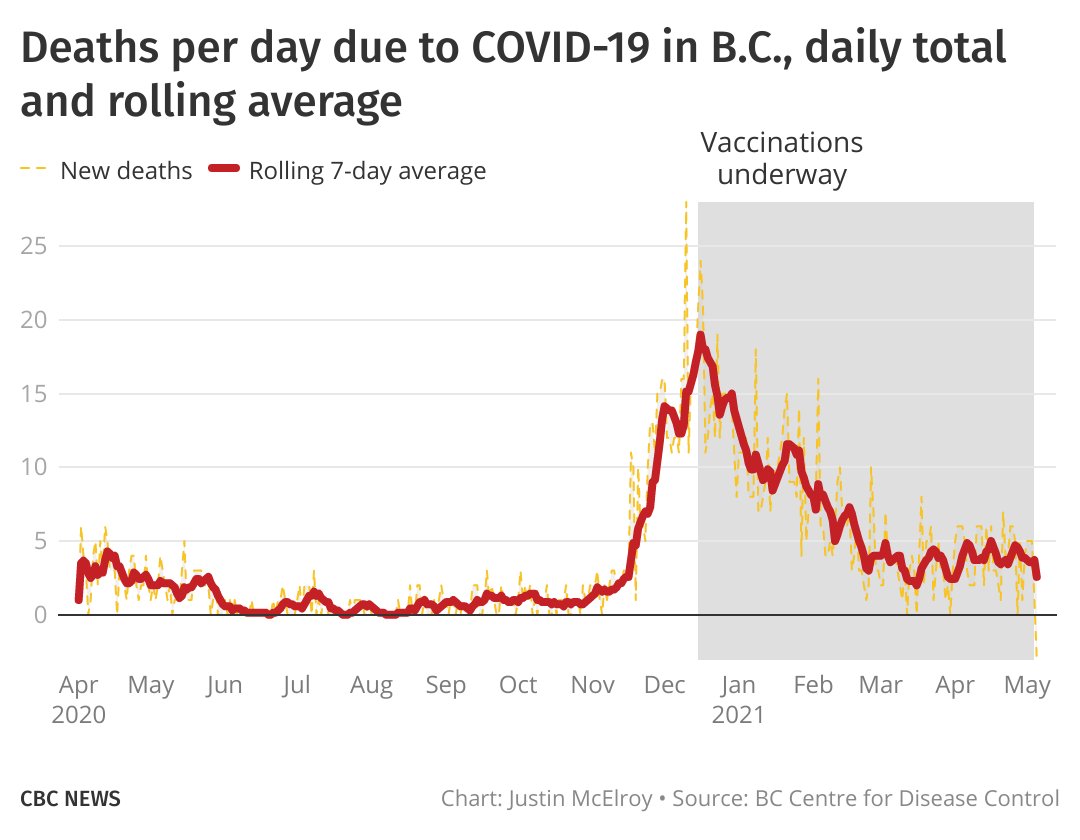
I think the thing about reporters increasingly showing their frustration with B.C.'s transparency is that pretty much everybody has changed their lives in huge ways to deal with a deadly pandemic, and the province's communications strategy seems to have stayed the same.
Taking hours to provide information to some requests and weeks for others, providing data only when it can have a shiny bow on it, hearing requests for transparency changes and sticking with the status quo...that's politics.
Most reporters, at a certain level, accept that.
Most reporters, at a certain level, accept that.
So you'll make a note in your story that the government didn't respond, or that B.C. lags behind province X in metric Y, or that you haven't gotten your FOI back, and move on. There's another story to cover. The daily battle for information continues.
But this isn't "government hasn't completed its promise" or "opposition accuses cabinet minister of corruption".
It's a virus that has killed millions of people.
It would seem to require a different, more apolitical sort of response.
It's a virus that has killed millions of people.
It would seem to require a different, more apolitical sort of response.
Instead, reporters deal with the same issues of waiting weeks for basic responses.
Doctors are told not to speak to reporters.
Even getting images of the first people vaccinated in B.C., a happy news story if there was one, turned into a giant tug of war over access.
Doctors are told not to speak to reporters.
Even getting images of the first people vaccinated in B.C., a happy news story if there was one, turned into a giant tug of war over access.
I honestly don't think a lot of this is malice.
I think it's a culture among B.C. political communication leaders and advisors, in all parties, that data and information needs to be controlled, and the media is inherently not to be trusted sharing it.

I think it's a culture among B.C. political communication leaders and advisors, in all parties, that data and information needs to be controlled, and the media is inherently not to be trusted sharing it.
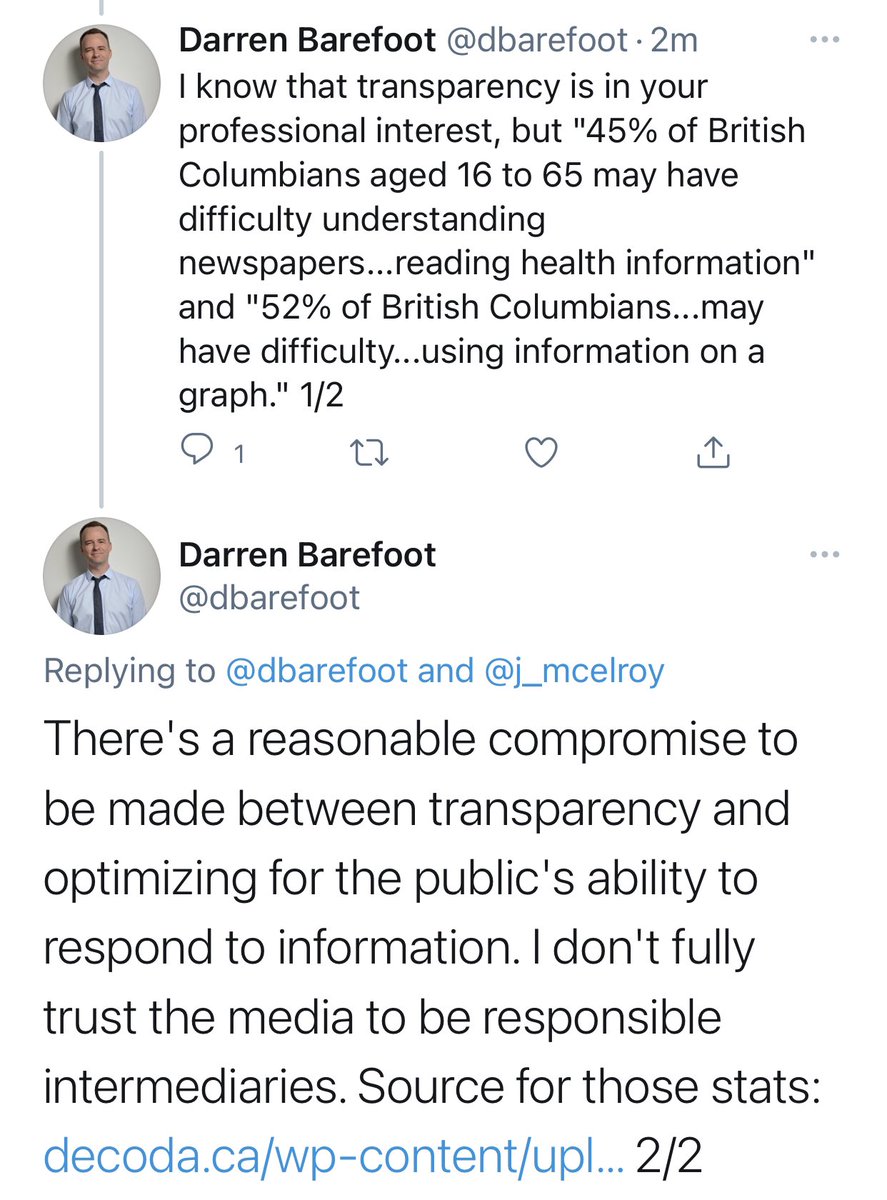
And to be fair, in the first half of the pandemic, the government quickly and proactively responded to many requests, even if the answer was "no, we're not sharing that."
But as it has gone on, people are more tired, criticisms more targeted, the core culture has reverted.
But as it has gone on, people are more tired, criticisms more targeted, the core culture has reverted.
Anyhow, it's a nice day and I should spend it not on the hate machine.
But hopefully this got at some of the clear rise in frustration you've seen from a number of reporters that have covered this pandemic for a while.
But hopefully this got at some of the clear rise in frustration you've seen from a number of reporters that have covered this pandemic for a while.
• • •
Missing some Tweet in this thread? You can try to
force a refresh






